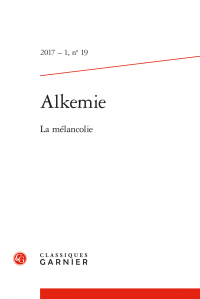Sénèque et la mélancolie
Seneca and melancholy
From otium to taedium
Author(s): Franck ColotteSubject(s): Philosophy, Language and Literature Studies, Literary Texts
Published by: Classiques Garnier
Keywords: Otium (leisure); taedium vitae (life-weariness); tranquillitas animi (quietness of the soul); libido moriendi (desire to die), praecepta (practical moral injunctions)
Summary/Abstract: This paper, focused on Seneca’s conception of melancholy, attempts to analyse the link between two important philosophical notions – otium and taedium vitae – constituting the ethics of the sewer of life due to idleness, and its opposite, happiness. After examining the “anatomy” of melancholy, that means the origin and development of this concept in medicine, we try to interpret how otium can lead to taedium and what kind of remedies Seneca offers to his pupil Quintus Serenus to reach the untroubled and tranquil condition of the soul (tranquillitas animi), characteristic of the Stoic sage.
Journal: ALKEMIE. Revue semestrielle de littérature et philosophie
- Issue Year: 1/2017
- Issue No: 19
- Page Range: 57-67
- Page Count: 11
- Language: French
- Content File-PDF

